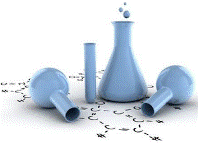Chemical and Biomolecular Engineering, Department of

Department of Chemical and Biomolecular Engineering: Faculty Publications
Date of this Version
9-16-2008
Document Type
Article
Abstract
Horseradish peroxidase was encapsulated in calcium alginate for the purpose of phenol removal. Considering enzyme encapsulation efficiency, retention activity and enzyme leakage of the capsules, the best gelation condition was found to be 1 % w/v of sodium alginate solution and 5.5 % w/v of calcium chloride hexahydrate. Upon immobilization, pH profile of enzyme activity changes as it shows higher value at basic and acidic solution. Besides, for each phenol concentration there would be an enzyme concentration which going further than this value has no significant effect on phenol removal. Investigation into time course of phenol removal for both encapsulated and free enzyme showed that encapsulated enzyme had nearly similar efficiency in comparison with the same concentration of free enzyme; however the capsules were reusable up to four cycles without any changes in their efficiency. The ratio of hydrogen peroxide/phenol at which highest phenol removal obtained, found to be dependent on initial phenol concentration and in the solution of 2 and 8 mM phenol it were 1.15 and 0.94 respectively.

